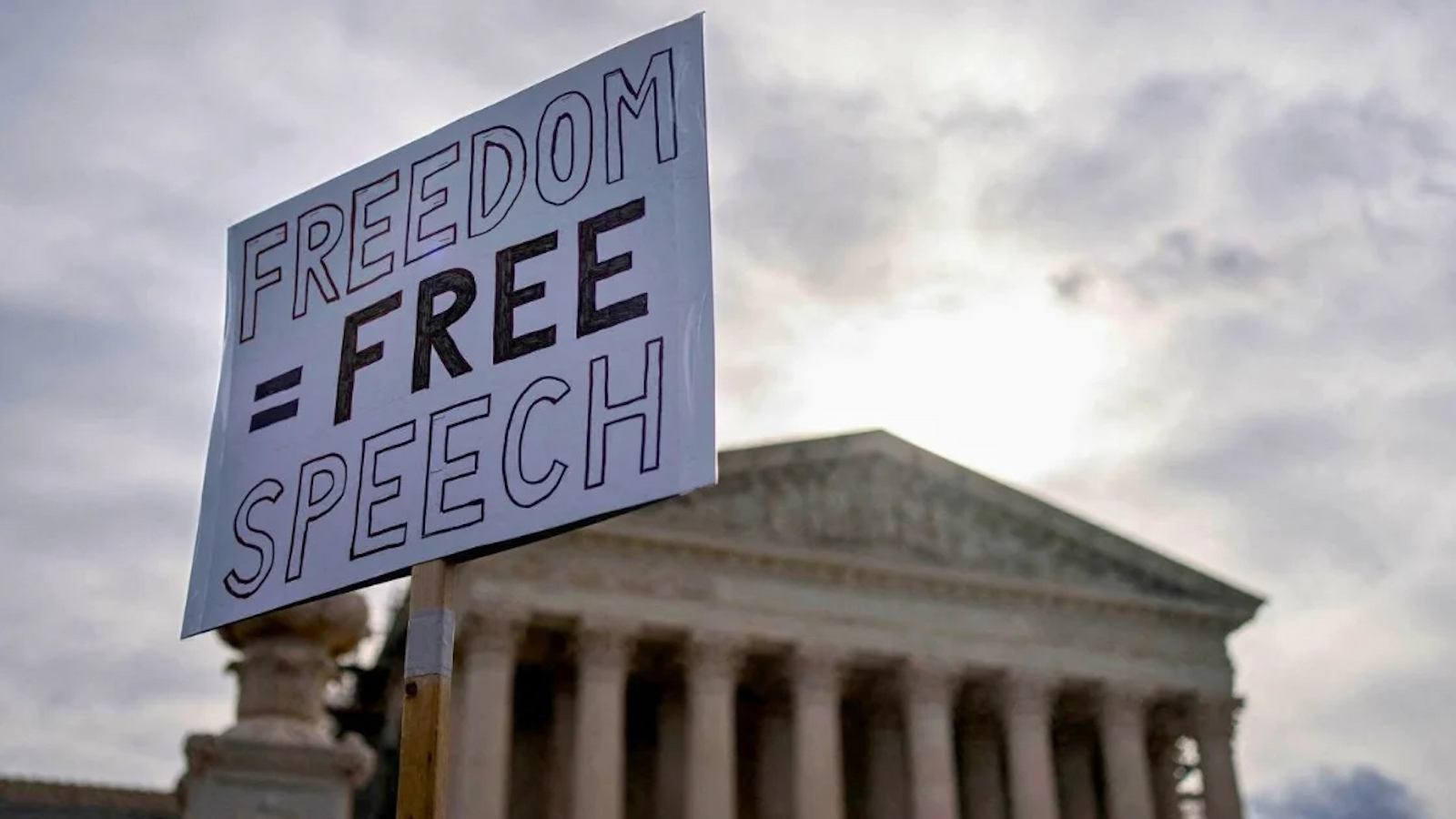
Americans Should Heed Thomas Paine Over Texas’ Abortion Law Fallout
Through all the public speculation, grumblings from special interest groups, and the fiery oral arguments, it seemed as though much of the country was prepared for the Supreme Court to strike down the oft-titled “bounty hunter” portion of Texas’ abortion law. But the issue directly before the Court this term was purely procedural. The Court has shut the door on some avenues for the law to be challenged, while leaving a window open for others. As for the bounty hunter provision, the Court appears to be waiting for a challenge currently ongoing in the lower courts to run its course. In the meantime, Texas’ law will continue to be in effect.
The contentious law, which seeks to ban abortions performed after six weeks of conception, is enforced by private actors, rather than state actors. By allowing the state to step back and let private individuals sue doctors whom they suspect of having performed an illegal abortion, Texas hoped to avoid judicial review and the high risk of the strict law being struck down.
While many abortion opponents have celebrated the law for its strict nature, many have criticized the nature of its enforcement.
Concerns over the law’s circumvention of judicial review has brought together women’s rights groups with the unlikely ally of firearms groups, who have cited concerns over this new method of enforcing laws that would otherwise be unconstitutional. In an amicus brief filed in opposition of the Texas law, the Firearms Policy Coalition warned that such enforcement schemes could be used against other rights, especially firearms:
This reality was certainly not lost on many of the Justices during oral arguments. Justice Kavanagh raised a hypothetical in which a state bans ownership of an AR-15-style rifle and enforces the prohibition through private lawsuits. Kavanagh also pressed the issue on speech and religion. What was most troubling was that the Texas Solicitor General conceded that these were more than possible applications.
Justice Sotomayor echoed this question in her written opinion, asking “What are federal courts to do if, for example, a State effectively prohibits worship by a disfavored religious minority through crushing ‘private’ litigation burdens amplified by skewed court procedures, but does a better job than Texas of disclaiming all enforcement by state officials?” While the bounty hunter issue was not specifically before the Court just yet, it is certainly on the minds of the Justices and it appears that an inevitable challenge would, hopefully, be successful, either on standing grounds or non-delegation.
Whenever I have conversations about the limits of constitutional rights, if any, I often stop to ask a question. Could this be turned on me down the road? My personal ideology generally accepts no such limits, short of causing harm to another person or their property, but such debates over limiting rights are happening every day, from the lowliest civilian to the highest public official. Which leads me to wonder, how often does everyone else ask that same question? Do we really consider the grave ramifications of such endeavors, or are we so blinded by our zealous natures that we ignore the potential for blowback?
Thomas Paine, the political philosopher and revolutionary, who wrote Common Sense and The American Crisis, two of the most influential writings in American history, had a very simple way of looking at such questions. Said Paine, “He that would make his own liberty secure must guard even his enemy from oppression; for if he violates this duty he establishes a precedent that will reach to himself.” On most days, I find this to be a sentiment that many Americans would agree with, unless, of course, they were the ones in charge.
Our desire to shape the world according to our own beliefs and ideologies causes us to forget the reality of American politics: the pendulum always swings back.
Paine saw a necessary balance in a nation based on natural rights. He also saw an undeniable characteristic of the nature of humanity. When one gains power over others, they will strive to impose their vision on them, often without regard for the consequences. The balance of natural rights places a restraint on the twisted ambitions of men. The desire to rule is contravened by the reality that one will inevitably be confronted by the same weapon. Should you seek to censor speech, so too may your speech be censored. Should you seek to prevent the exercise of a particular faith, so too may your faith be barred.
Unfortunately, this is a lesson that we have failed to learn, while bathing in our hypocritic waters, blissfully unaware of the consequences of our hubris. On December 12th, Governor Gavin Newsom of California announced a plan to ban the otherwise legal sale and manufacturing of “assault weapons” under a scheme similar to the Texas law. While it may be said that Newsom is simply trying to make a point to the pro-life crowd, it is well known that Newsom is no friend to gun owners, and he may be using this as an opportunity to finally get around D.C. v. Heller. While I do not wish to speculate, it puts the reality of the Texas law front and center: If you attack the rights of one person, your rights will inevitably fall under the same sword.
Time will be the final judge of the Texas law. As further challenges make their way up the judicial ladder, America will have to wait and see. In the meantime, disgruntled lawmakers like Newsom are certain to begin taking heavy swings at the rights of political opponents. If the question of the bounty hunter provision, which should now almost certainly be called the “secret police” clause, is not resolved soon, we will likely see further retaliation following state elections while neighbors are further turned against each other in a savage battle of the heart.
Paine understood that men were not angels, which is why he called for such a balance and understanding between political and ideological opponents. While I am forever skeptical of authority and those who wield it, I am certain that we are better than a people who would actively try to destroy the rights of our neighbors by acting like predators in the night. But this is only true if we are willing to set aside our zealous nature and think critically of the consequences that result from our desire to rule our neighbors.
Free the People publishes opinion-based articles from contributing writers. The opinions and ideas expressed do not always reflect the opinions and ideas that Free the People endorses. We believe in free speech, and in providing a platform for open dialogue. Feel free to leave a comment.



